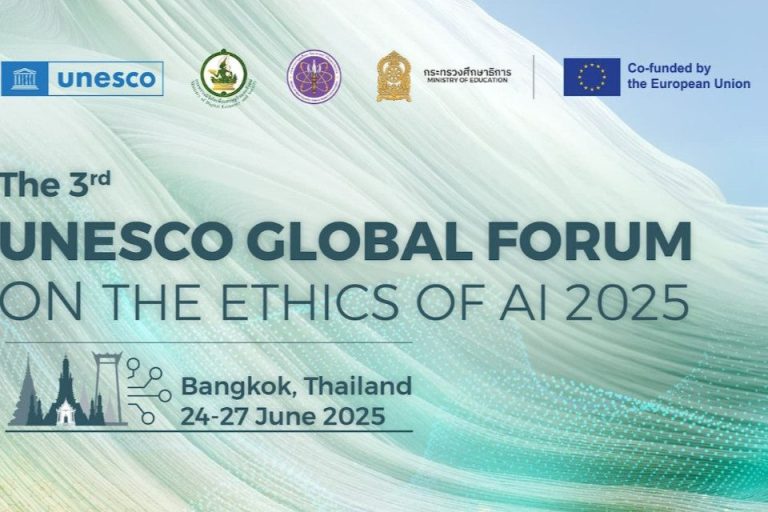The United Nations Educational, Scientific and Cultural Organisation (UNESCO) has announced the launch of two landmark initiatives: the Global Network of Artificial Intelligence (AI) Supervisory Authorities, and the Global Network of Civil Society and Academia, during its third Global Forum on the Ethics of Artificial Intelligence, which took place in Bangkok, Thailand, from June 24 to 27, 2025.
The networks are designed to strengthen ethical AI governance and promote inclusive public participation in shaping AI policy and implementation. The forum convened over 1,200 participants from 88 countries, reaffirming the global commitment to human-centred and accountable AI development.
The forum, which was held from June 24 to 27, 2025, featured 22 thematic sessions and 11 side events, tackling critical issues such as gender, education, health, and emerging technologies like neurotechnology and quantum computing. High-level delegates, including ministers and representatives from intergovernmental bodies, emphasised the importance of grounding AI strategies in local realities and fostering cross-sector collaboration. By uniting diverse voices and translating ethical principles into action, UNESCO continues to lead the global movement toward responsible and inclusive AI governance.
The launch of the two global networks marks a significant milestone in the implementation of UNESCO’s 2021 recommendation on the ethics of Artificial Intelligence, the world’s first global standard on AI ethics. Through collaboration with national regulators and civil society, these initiatives aim to build institutional capacity, share knowledge, and ensure that AI technologies are developed and deployed in ways that uphold human rights, equity, and sustainability.
UNESCO’s plan to support countries using its Readiness Assessment Methodology (RAM) further reinforces its commitment to aligning national priorities with ethical AI governance frameworks.
With Thailand serving as co-host, the forum also highlighted the Asia-Pacific region’s growing role in shaping the global AI agenda. As one of over 70 countries participating in UNESCO’s Readiness Assessment Methodology, Thailand exemplifies how national efforts can align with international standards to create robust and inclusive AI policies. Leaders at the forum, including Thailand’s Prime Minister, Paetongtarn Shinawatra, stressed the shared responsibility of governments, institutions, and communities to ensure AI delivers real, inclusive, and lasting benefits for all.
As the digital landscape continues to evolve, UNESCO reaffirmed its commitment to guiding the ethical development of AI through global cooperation and practical tools. The organisation called on governments, tech companies, academia, and civil society to actively engage in shaping a future where AI technologies serve humanity, protect rights, and advance sustainable development. With momentum from the Bangkok forum, UNESCO aims to transform principles into action and ensure that no one is left behind in the age of artificial intelligence.





